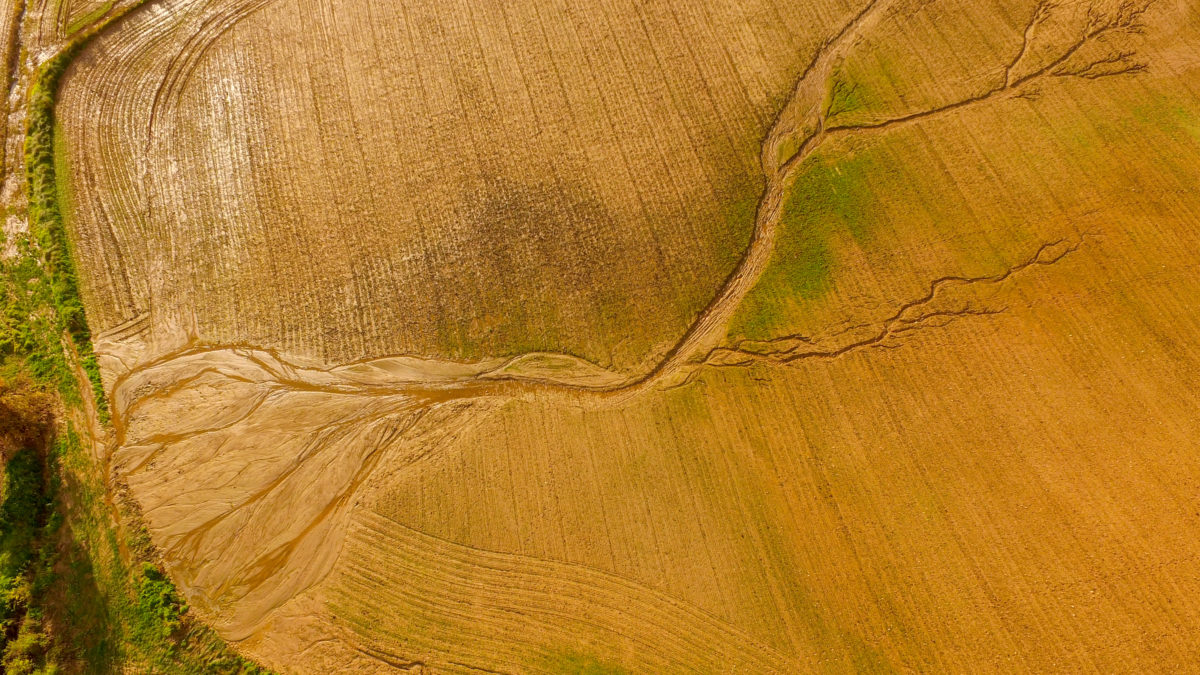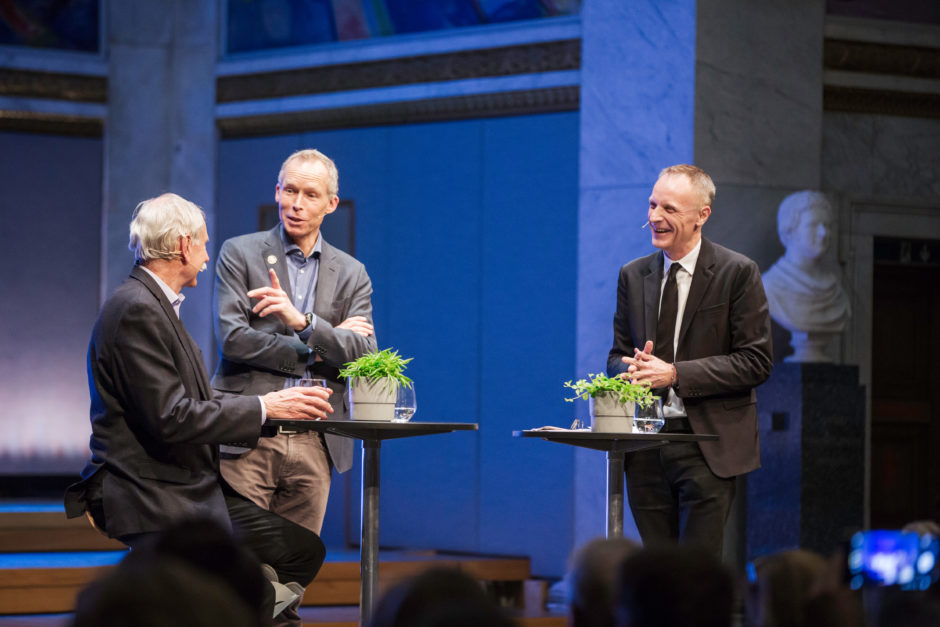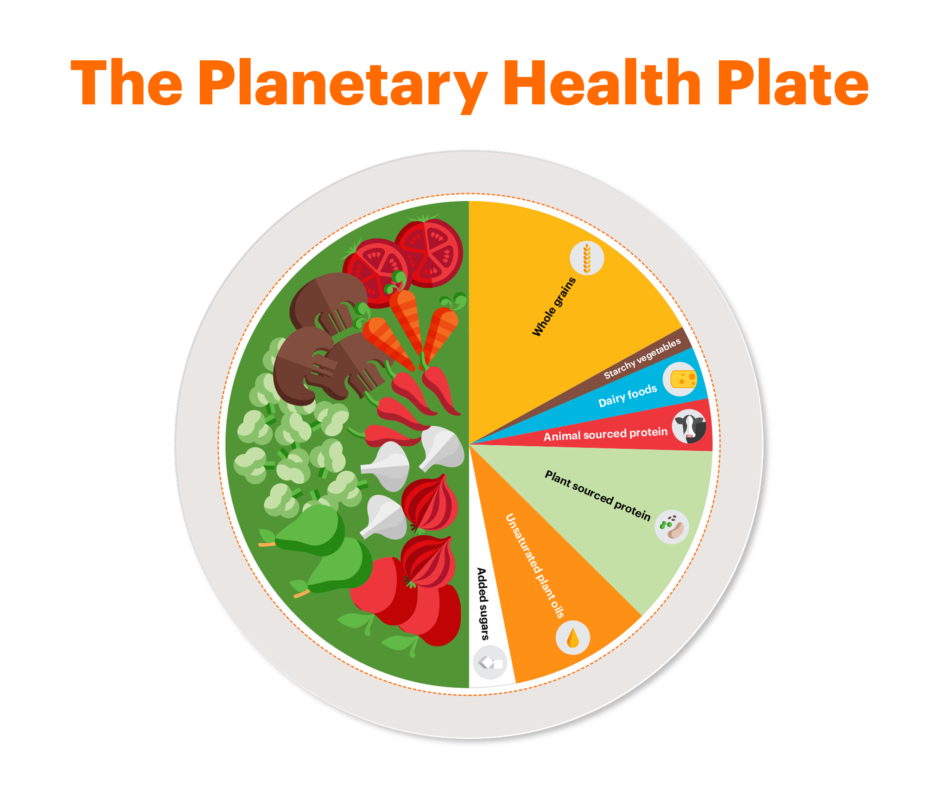
In early August the United Nations Intergovernmental Panel on Climate Change (IPCC) released an important report on food, agriculture and climate change. The IPCC report was prepared by 107 scientists, from 52 countries, more than half of which are developing nations.
The IPCC Special Report on Climate Change and Land is the most comprehensive assessment on land-use in over a decade. And it shows a clear call to action: If we don’t rapidly change the course for our food systems, we won’t be able to prevent the climate crisis.
It also shows that we all have a role to play in making the change.
The IPCC Report
In the fight against climate change, food is the dark horse. What we eat and how it’s produced is the final battleground in determining whether or not we will achieve the Paris Agreement.
The IPCC report notes that to meet our climate change commitments, we need to address issues related to agriculture – how we produce, consume and distribute food must change.
Land must remain productive in order to maintain food security as the world’s population continues to increase to 10-12 billion. At the same time, there must be limits to the contribution of land, both in terms of halting the conversion of natural ecosystems to agriculture, or the conversion of food-based agriculture for the cultivation of energy crops and afforestation. Carbon dense natural ecosystems such as forests, wetlands, and peatlands are our first line of defense against climate change.
The report shows that while food production practices are a major driver of climate change and source of carbon emissions; food production is also the primary victim of climate change through impacts of sea-level rise, droughts and flooding will continue to affect agricultural production in various parts of the world as well.
The report also states we need to change our eating habits by consuming more legumes, grains and vegetables and less animal-based protein as a means of reducing climate impacts of food production. Of concern is that the foods which we currently are over-consuming have high climate impact, yet healthy foods which the nutrition community urges greater consumption of, are more vulnerable to climate change.

How IPCC & EAT-Lancet align
- Food systems contribute significantly to greenhouse gas emissions and the climate crisis
- Changing consumption patterns, aligned with the Planetary Health Diet, will help
- Food waste must be halved to reduce greenhouse gas emissions and improve food security
- Improving food quality is essential in order to feed a growing population safe and nutritious food
- Businesses must take a leading role for the scale of change we need to happen
The IPCC report echoes many of the assertions put forward in the EAT-Lancet Commission Report released in January earlier this year. Both are bold in naming concerns about global food production and carbon emissions. According to both the IPCC report and the EAT-Lancet Commission, approximately 23 percent of global GHG emissions come from food and land-use. This presents our greatest opportunity in our fight against the climate crisis.
If 40 percent of the global population shifts to the EAT-Lancet dietary recommendations of the planetary health diet by 2030 and 75 percent by 2050, we will on track achieving food-related GHG emissions targets.
EAT Talk: The EAT-Lancet Report Explained
Rising incomes and urbanization are driving a global dietary transition in which traditional diets are being replaced by diets higher in animal source foods, which carry a far greater GHG emissions burden. If this trend is not broken, GHG emissions from food consumption and production will nearly double by 2050, risking our ability to achieve the Paris Agreement and leading to higher rates of land conversion and biodiversity loss.
This does not mean, however, that we all need to skip meat entirely to fight climate change. The science shows that we can still eat meat and dairy as a part of a healthy diet for people and planet: we can eat up to four servings of animal-source foods each week and still stay within global targets for food-related GHG emissions.
Both the reports note that food quality and reducing waste should also be priorities when it comes to sustainable systems and climate change. Improving food quality is essential to ensure safe and nutritious food for a growing population, and food waste must be halved in order to stay on track for the SDGs.
Read more: Five Frequently Asked Questions About the EAT-Lancet.

Target Focused Groups: Opportunities
The IPCC report shows, like many others before, the need to transform our global food system. The EAT-Lancet Commission has similarly included strategic policy advice for governments and consumers regarding healthy diets and sustainable food systems.
Protecting nature and solving the climate crisis cannot be reached by the current business as usual:
- Business and policy have a critical role to play in shifting to sustainable and healthy diets and food production. Policy to protect forests and land, policy to adopt EAT-Lancet aligned national nutritional guidelines are just two examples of how.
- The agricultural industry is the most responsible for the major climate risks we are facing, which means they have the most opportunity to be leaders for the change we need. If agribusiness leaders take the responsibility and opportunity to lead with this science in mind, they can help protect our planet and lives.
- Investors and banks must put see the long-term environmental tied to their investments. Meaningful investment in new innovation to support agriculture that aligns with the science will ensure a healthy and sustainable food system, now and into the future.
- Individually, we must strive to eliminate food waste and eat healthy and enjoyable diets. Everyone has an opportunity to make changes in our personal habits and choose to eat the planetary health diet.
The Planetary Health Diet: Find all recipes here.
EAT in aligned action – already!
EAT will continuously keep fighting for a food system that is both healthy, sustainable and inclusive. Our aim is to bridge the necessary knowledge into action through novel partnerships, impatient collaborations, and groundbreaking science.
We are currently collaborating with companies like Hurtigruten and the world’s largest foodservice provider, Compass group, with governments like Norway, Sweden, and Indonesia, cities like Copenhagen, organizations like UNICEF, FAO and others all echo this call to action around sound science. Together with these groups and many others we are taking the EAT-Lancet and putting it into action. The IPCC report is a great push forward in the movement.
Food continues to be one of the most important industries and global employers. Business leaders and farmers alike can support our shared future by using science as a guide. Policies that support needed transitions in alignment with the science is critical. Investments that can support economic shifts to bring farmers along in the transition is essential.
Food—how we produce it, what we eat, and what we waste of it—may just be the greatest opportunity to save millions of lives and improve many more. Food is the single strongest lever to optimize human health and environmental sustainability on Earth. Together we must halt land conversion and forest loss, and collaborate to restore damaged ecosystems. We cannot wait any longer.
Read more: The EAT-Lancet Summary Report.
Are you interested in more stories from EAT? We curate a monthly newsletter with news and updates, sent directly to your inbox. Sign up to our newsletter here.